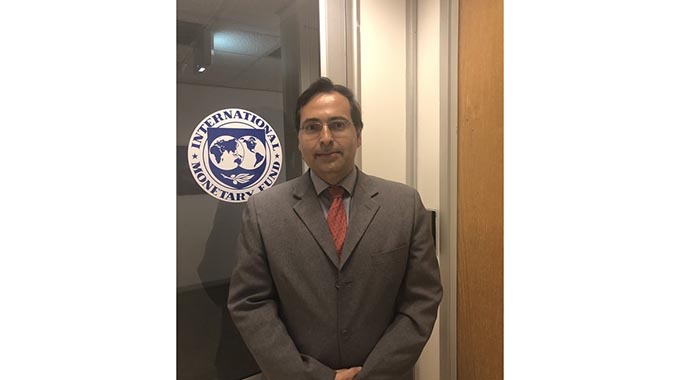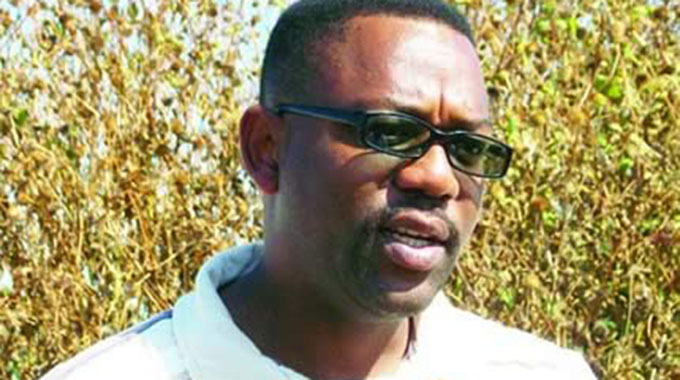IMF speaks on Zim relations, economic progress

The International Monetary Fund (IMF) says the Staff Monitored Programme between the fund and Zimbabwe will put the country on a sustainable growth trajectory and help build a track record of sound economic policies as it seeks to normalise its relations with external creditors. The international fund also spoke on why it does not currently provide financial support for Zimbabwe and what needs to be done for that to happen.
Below are responses to questions sent by The Herald Business (BR) to the IMFs representative in the country Patrick Imam (PI).
BR: There is an agreement on the Staff Monitored Programme (SMP). Can you give us a background on the SMP?
PI: Yes, absolutely. Zimbabwe faces deep macroeconomic imbalances. Through the Staff Monitored Programme, IMF Staff will support the authorities to implement and monitor the key policies outlined in their Transitional Stabilisation Programme.
If it’s implemented successfully, the SMP will put Zimbabwe on a sustainable growth trajectory and help build a track record of sound economic policies as it seeks to normalise its relations with external creditors.
The SMP will be implemented from May 2019 to March 2020, with quarterly reviews.
BR: What are the main objectives of the SMP?
PI: The objectives of the SMP are straightforward, namely to restore macroeconomic stability. This will be achieved through reducing the fiscal deficit while maintaining investment in key infrastructure and priority social spending.
The SMP is anchored on a revised budget that seeks to do away with central bank financing of the budget, which is critical to support the new currency.
What this means concretely is that the authorities have already committed since the end of last year to stop monetary accommodation of the fiscal deficit, which should help stabilise inflation as well as the currency.
To enhance financial stability, financial sector reforms will be implemented, such as tightening the regulatory framework.
The structural reform agenda will also include the strengthening of Public Financial Management measures and reforming State-Owned Enterprises. And finally, tackling governance and corruption vulnerabilities is also on the agenda.
BR: Why does the IMF not provide financial support for Zimbabwe?
PI: The conditions are not yet in place for the IMF to provide financial support for Zimbabwe. Given that the country has arrears to other international organisations, as well as bilateral arrears, the Fund is not in a position yet to financially support the country.
Zimbabwe will need to go through a comprehensive debt clearance framework with the international community first. In addition, Zimbabwe needs to build a track record to prove that it can implement reforms to tackle deep-rooted problems, as the hurdle rate for a financially supported program is high. The SMP aims to achieve this track record.
BR: What are the economic forecasts for this year?
PI: Our growth projection for 2019 is one of a recession. We are tabling on a negative 2 percent growth rate. The country suffered from headwinds, particularly the natural disaster ranging from El Nino to the Cyclone Idai, which had a negative impact on agricultural production. In addition, the significant fiscal adjustment has dampened demand.
The health of Zimbabwe’s key trading partners, in particular South Africa but also the slowdown in China, also has not helped.
The short-term risks to the outlook remain tilted to the downside and include factors that are within the authorities’ control.
Policy slippages, or interference by vested interests, could impede ongoing efforts to have market-determined exchange and interest rates. Spending pressures on wages or higher than budgeted subsidies to State-Owned Enterprises or the agriculture sector could also jeopardise some of the fiscal goals.
In this context, back tracking on the fiscal adjustment and resorting to central bank financing of the deficit could lead in turn to a vicious wage-price spiral.
Having said all that, given the potential of Zimbabwe, the growth numbers could obviously be significantly higher, if the right conditions are put in place. Improving the business climate, tackling the foreign exchange shortages, and improving governance could all unleash an investment boom.
But this implies also that the government efficiently utilises the resources at its disposal and provides essential public goods that are motors of growth, such as a healthy and educated labour force, or improve on the infrastructure.
BR: Is the IMF satisfied with progress on the monetary reforms?
PI: The adoption of a new currency and the creation of an interbank FX market was a welcome development.
Furthermore, the anticipated adoption of a monetary policy framework based on money targets is expected to help anchor inflation and stabilise the exchange rate.
At this stage, the monetary reform is still work in progress. Now it’s about making sure that these reforms are implemented, and that we have a fully-functioning interbank market.
The Governor has made it clear that he is ironing out some technical issues, and that we would then have a well-functioning foreign exchange market in the near future.
BR: What are the conditions needed for Zimbabwe to qualify for an ECF? Are political reforms required?
PI: Before Zimbabwe can receive financial support from the IMF, it needs to clear its arrears with the three international financial institutions, namely the African Development Bank, European Investment Bank and the World Bank. In addition, the country also has arrears towards bilateral creditors such as Germany, which have to be addressed as well. This is typically treated in the context of the Paris Club.
In addition, consideration of any future request for IMF financing would also require Zimbabwe to readily implement strong macroeconomic policies and structural reforms to restore fiscal and debt sustainability, foster private sector development by reducing the cost of doing business and reducing policy uncertainty.
Much of what needs to be done on that front is already articulated in the TSP.
On your second question regarding the political reforms, the international community has made it clear that it wants to see a two-track reform process. Economic and political reforms should be moving hand-in-hand, and not sequentially. But the political reforms are not part of our mandate, and therefore I cannot comment on it.
BR: Any final world?
PI: Let me start by saying that we are all aware that the economic and social situation is difficult. The international community genuinely feels this pain. However, we are hopeful that the worst should be behind us this year.
With economic and political reforms moving hand-in-hand, I am confident that we will have a deepening re-engagement with the international community in the near future.
Zimbabwe has everything to succeed. It has natural resources in both mining and agriculture. But the reason I am most confident in the future of this country is because of its people. Zimbabwe has an educated and hardworking labour force, and in the right context, can rapidly regain the status of the Switzerland of Africa.











Comments